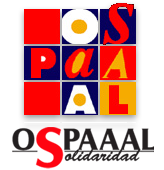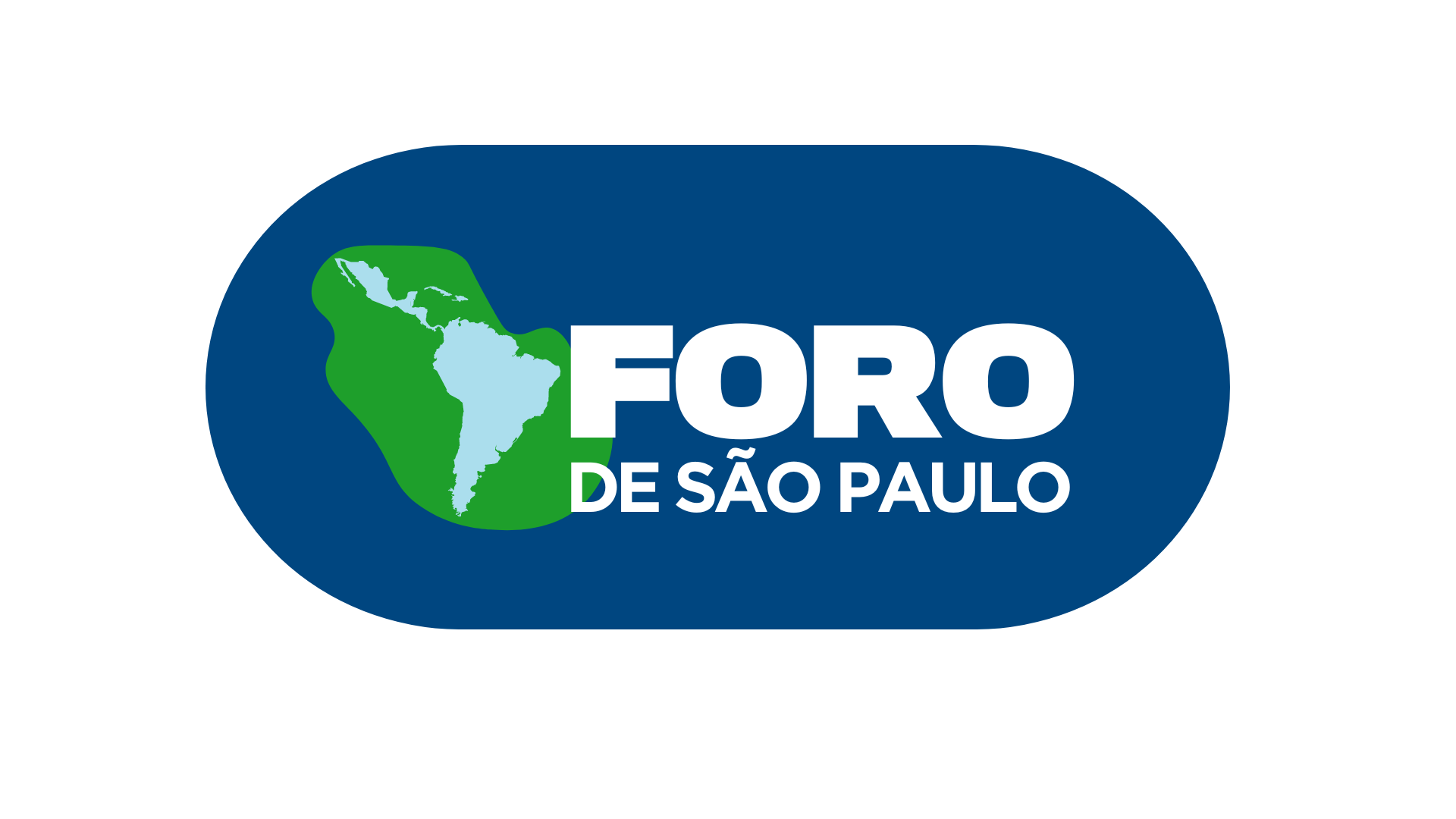Debaten en la OSPAAAL retos de los gobierno de izquierda en América Latina
 (14/10/11)
(14/10/11)
Los retos de los gobiernos de izquierda en América Latina para construir un nuevo poder popular en franco enfrentamiento a las burguesías nacionales y el imperialismo norteamericano fueron analizados hoy aquí por el politólogo y escritor cubano Roberto Regalado.
Regalado, investigador del Centro de Estudios Hemisféricos y sobre Estados Unidos de la Universidad de La Habana, hizo un recuento histórico de la lucha de la izquierda en el continente después del triunfo de la Revolución Cubana y las políticas puestas en práctica por diferentes gobiernos norteamericanos para enfrentarla.
En el conversatorio, realizado en la sede de la Organización de Solidaridad de los Pueblos de Africa, Asia y América Latina (OSPAAAL), participaron representantes de partidos y organizaciones políticas acreditadas en Cuba, académicos, y otras personalidades.
Regalado, autor de varios libros y editor de la revista Contexto Latinoamericano, mencionó como parte de las políticas norteamericanas contra la izquierda el establecimiento de dictaduras militares de “seguridad nacional” en la mayor parte de los países de la región entre 1964 y 1989.
La implantación de estos regímenes dictatoriales –dijo- tenían como objetivo eliminar toda resistencia al dominio imperialista e imponer por la fuerza el sistema económico neoliberal que predomina hoy en el mundo, incluyendola la mayor parte de América Latina.
Subrayó que las dictaduras cedieron luego paso a pactos entre los militares golpistas y los partidos políticos de derecha para restaurar la democracia burguesa en América Latina bajo nuevas condiciones de explotación neoliberal y dominación imperialista.
Expuso que a pesar de estas políticas, Estados Unidos no fue capaz de lograr todos sus objetivos que era establecer el modelo explotador neoliberal del ALCA y garantizar la prevalencia de gobiernos dóciles integrados por la burguesías neoliberales.
El autor del libro “América Latina entre siglos” destacó que en la resistencia de las fuerzas populares influyó el legado de las luchas armadas que tuvieron lugar en la región, el ejemplo del guerrillero argentino-cubano Ernesto Che Guevara y la existencia misma de la Revolución cubana.
La enorme acumulación de violaciones a los derechos humanos y la marginalización y explotación de amplios sectores de la población, incluyendo a una buena parte de la pequeña burguesía, contribuyeron también al rápido agotamiento de los gobiernos emergentes de las dictaduras militares, apuntó.
En este contexto –agregó-aparecieron nuevos movimientos y luchas sociales, que adquieren un creciente protagonismo político, y pasan a primer plano la lucha social reivindicativa y la competencia electoral de la izquierda dentro de la democracia burguesa, cuyos postulados formales se aplican, por primera vez, en toda la región, excepto en Cuba.
Para el politólogo cubano el triunfo de Hugo Chávez en Venezuela en 1998 marcó el inicio de este proceso, que ha contribuido a la formación del nuevo mapa político, con gobiernos de izquierda y progresistas en Argentina, Bolivia, Brasil, Ecuador, El Salvador, Nicaragua, Paraguay, Perú, Venezuela y Uruguay.
Muchos de estos gobiernos –apuntó- están formados por coaliciones en las que participan fuerzas de izquierda, centroizquierda, centro e incluso de derecha. “En algunos la izquierda es el elemento aglutinador de la coalición, mientras que en otros ella ocupa una posición secundaria”, puntualizó Regalado.
En la parte final de su exposición, expuso los retos que enfrentan estos gobiernos, en primer lugar la contraofensiva norteamericana, que dio lugar a la huelga petrolera en Venezuela, el derrocamiento del gobierno de Honduras y los intentos de golpesde estado en Venezuela, Bolivia y Ecuador, entre otras manifestaciones.
Esto significa que con la creciente presencia de bases militares norteamericanas en América Latina-especialmente las siete que existen en Colombia-, y con la complicidad de las burguesías locales, el gobierno norteamericano no cesa de conspirar para enfrentar el nuevo mapa político en América Latina.
“No debemos olvidar –subrayó- que también uno de los objetivos estratégicos de Estados Unidos en esta parte del mundo sigue siendo tratar de cercar y derrotar a la Revolución Cubana”.
Otro de los retos importantes mencionados por el expositor es que los gobiernos de izquierda y progresistas constituyen cada uno espacios de confrontación entre la hegemonía neoliberal y la contra hegemonía popular.
Al respecto señaló que la izquierda latinoamericana ha conquistado importantes espacios institucionales, pero el proyecto alternativo, poscapitalista, socialista, no acaba de nacer: está aún en fase de construcción.
Añadió que estos gobiernos no destruyeron al Estado burgués, ni eliminaron la propiedad privada de los medios de producción, no fundan un nuevo poder, ejercido exclusivamente por las clases desposeídas, pero tampoco pueden reeditar en América Latina el llamado Estado de Bienestar europeo occidental de posguerra.
Por esta razón en cada proceso electoral que se efectúa se juegan su permanencia o no en el gobierno frente a una derecha política más o menos dividida, o deben establecer alianzas con sectores de la misma.
En el seno de estos gobiernos prevalecen además discrepancias “sobre cuánto respetar y cuánto combatir la hegemonía neoliberal”, dijo Regalado.
A manera de conclusiones expresó que la lucha revolucionaria no encaja en los patrones tradicionales de revolución y reforma y que la izquierda no solo lucha por el poder desde la oposición, sino también desde el propio ejercicio del gobierno.
Tras preguntarse hasta qué punto la izquierda accede al gobierno para ejercerlo como un fin en sí mismo o para construir un nuevo poder popular, Regalado concluye que “la respuesta depende del resultado de la lucha ideológica que se libra dentro los partidos, movimientos políticos y coaliciones protagonistas”.
CHALLENGES TO LEFTIST GOVERNMENTS IN LATIN AMERICA DISCUSSED AT OSPAAAL
Havana, Oct. 14 – The challenges posed to the leftist governments in Latin America to establish a new popular power in clear opposition to the national bourgeoisies and U.S. imperialism were analyzed here today by Cuban political expert and writer Roberto Regalado.
Regalado, a researcher at the Center for Hemispherical and United States Studies of the University of Havana, gave a historical overview of the struggle of the left in the continent after the triumph of the Cuban Revolution, and the policies implemented by different U.S. administrations to confront it.
Representatives of political parties and organizations accredited in Cuba, academicians and other personalities participated in the informal exchange held at the headquarters of the Organization of Solidarity of the Peoples of Africa, Asia and Latin America (OSPAAAL).
Author of several books and editor of the magazine Contexto Latinoamericano, Regalado mentioned the establishment of “national security” military dictatorships between 1964 and 1989 in the majority of the countries in the region, as part of the U.S. policies against the left.
He said the establishment of these dictatorial regimes had the purpose of eliminating any resistance to imperialist dominion, and imposing by force the neo liberal economic system predominating in the world today, including the largest part of Latin America.
He underlined that the dictatorships then made way for pacts between the putschist military and the rightist political parties to restore the bourgeois democracy in Latin America under new neo liberal conditions of exploitation and imperialist domination.
In spite of these policies, he explained, the United States was not able to achieve all its targets, which were to establish the FTAA neo liberal exploitation model and ensure the prevalence of obedient governments made up by the neo liberal bourgeoisies.
The author of the book “Latin America throughout the Centuries” underlined that the legacy of the armed struggles in the region, the example of the Argentinean-Cuban guerrilla fighter Ernesto Che Guevara and the very existence of the Cuban Revolution had an influence on the resistance of the popular forces.
The huge accumulation of violations to human rights and the marginalization and exploitation of wide sectors of the population, including a good part of the small bourgeoisie, also contributed to the rapid exhaustion of the governments that emerged from the military dictatorships.
New movements and social struggles emerged in this context—he added—that gain a growing political leadership, bringing to the foreground the social struggle for vindications and the electoral race of the left within the bourgeois democracy, whose formal postulates are being applied for the first time in the entire region except in Cuba.
According to the Cuban political expert, Hugo Chávez’ triumph in Venezuela in 1998 marked the beginning of this process, which has contributed to the design of the new political map, with leftist and progressive governments in Argentina, Bolivia, Brazil, Ecuador, El Salvador, Nicaragua, Paraguay, Peru, Venezuela and Uruguay.
Many of these governments—he pointed out—are made up by coalitions in which leftist, center-leftist, center and even rightist forces participate. “In some of them the left is the joining element of the coalition, while in others it holds a secondary position”, specified Regalado.
In the last part of his presentation he mentioned the challenges faced by these governments —in the first place the U.S. counteroffensive, which originated the oil strike in Venezuela, the overthrowing of the Honduran government, and the attempts of coups d’état in Venezuela, Bolivia and Ecuador, among other methods.
This means that with the growing presence of U.S. military bases in Latin America—particularly the seven existing in Colombia—and with the complicity of the local bourgeoisies, the U.S. government does not cease to conspire in order to face the new political map in Latin America.
“We must not forget—he underlined—that one of the strategic targets of the United States in this part of the world still is to try to siege and defeat the Cuban Revolution”.
Another important challenge mentioned by the speaker is that each one of the leftist and progressive governments is a space of confrontation between the neo liberal hegemony and the popular counter hegemony.
In this regard he stated that the Latin American left has conquered important institutional spaces, but the alternative, post capitalist, socialist project is not yet a reality: it is still in a phase of construction.
He further added that these governments did not destroy the bourgeois State nor did they eliminate private property over the production means; they do not found a new power, solely exercised by the dispossessed classes, but neither can they repeat in Latin America the so-called state of welfare of post-war Western Europe.
For this reason, in each election process that takes place they risk their permanence or not in the government against a more or less divided political right, or else they must create alliances with sectors of it.
Discrepancies on “how much to respect and how much to fight the neo liberal hegemony” also prevail in the core of these governments, Regalado said.
By way of conclusion, he stated that the revolutionary struggle does not fit into the traditional patterns revolution and reform, and that the left is not only struggling for power from the opposition but also from the very practice of the government.
After questioning to what point the left reaches the government to exert it as an end by itself or to build a new popular power, Regalado concludes that “the answer depends of the result of the ideological struggle being waged inside the parties, political movements and protagonist coalitions”.
Fuente: OSPAAAL
